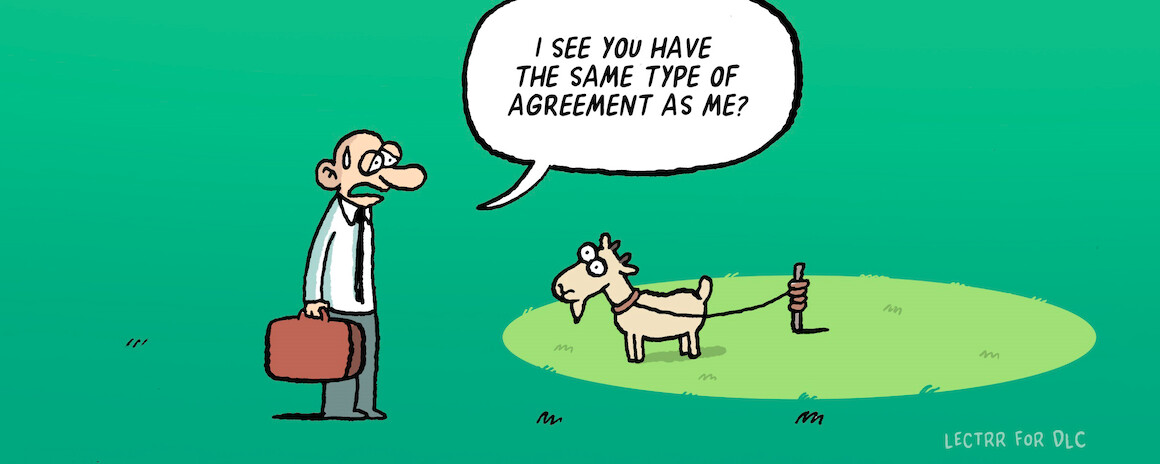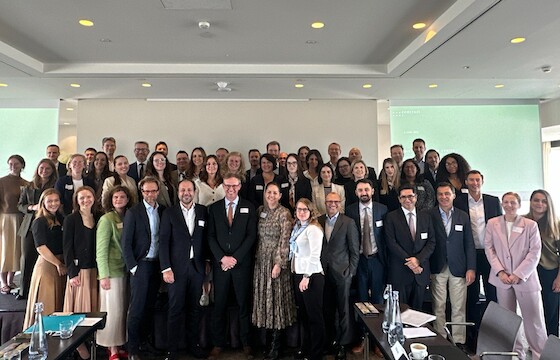What?
Classic notions in the world of vertical agreements are those of “active sales” and “passive sales”. Active sales involve some form of active targeting of a particular customer group or territory. Passive sales consist of transactions in response to unsolicited requests from individual customers without having initiated the sales by means of active targeting of such customers.
More concretely, if a distributor sends a publicity letter or mail to a particular customer, he is engaging in active sales when, as a result, that customer places an order. Conversely, if the customer has picked up some general advertising in a magazine and visits the shop of the distributor, the subsequent sale is a passive sale. There are numerous variations on the same theme, but the dividing line in legal terms is clear. It depends on the party that took a targeted initiative to arrive at the transaction. In the case of active selling, it is the distributor who does so. With passive sales, the initiative rests with the customer.
In order to protect efforts and investments made by exclusive distributors, the block exemption regime accepts under strict conditions that other distributors may be obliged to refrain from active selling into the territory or to a customer group that is allocated to an exclusive distributor.
This countdown deals with the first of three conditions (the exclusivity condition) that must be met to render active sales restrictions compatible with the block exemption and thus automatically exempted under the EU competition rules. Given the complexity of the matter, the two other conditions (the parallel imposition requirement and the roll-over prohibition) are addressed separately in the next two countdowns no. 13 and 14.
Now?
The current Vertical Block Exemption Regulation (the “VBER”) places the imposition of restrictions on active and passive selling in principle on the black list. There is however a limited exception, that is subject to stringent cumulative conditions.
Before addressing these conditions, it is important to underscore that the exception does not apply to protect selective distributors. Selective distributors cannot be protected against active selling by other distributors (that are active at the retail level) to end users that are located within their territory. Furthermore, the exception covers active sales restrictions, but never passive sales restrictions. The latter are always black-listed.
The first condition is that the active sales restriction must target a territory or a customer group that is either reserved to the supplier or exclusively allocated to a particular distributor. The current Vertical Guidelines make it clear that the exception applies only if the customer group or territory is allocated to one (i.e. a single) distributor. Hence active sales restrictions are not possible if the customer group or territory is shared between more distributors or if the supplier has contractually preserved the freedom to appoint additional distributors.
The parties enjoy absolute freedom when defining the customer group or territory. This makes it easier to ensure that the first condition (one single distributor) is met. In practice, suppliers often work with maps on which the geographic boundaries of the territories are indicated and such boundaries are defined in such a manner that it is easy to prove that the first condition is met.
The future as of 1 June 2022?
The Commission proposals amend the first condition in two respects.
The first is that the requirement of having no more than a single distributor in the relevant territory or to whom a customer group is allocated is abandoned. It suffices that a limited number of distributors is appointed for the territory or customer group. This means in practice that so-called shared exclusivity is also covered by the exception that grants a block exemption to active sales restrictions.
The second is that the parties seem to lose some freedom when defining the territory or customer group involved. The proposals state that the number of distributors must be determined in proportion to the allocated territory or customer group in such a way as to secure a certain volume of business that preserves their investment efforts. Needless to say, this new test leaves ample room for debate.
In practice?
The Commission proposals bring additional flexibility when operating active sales restrictions. There is no need to carve up territories or customer groups in an artificial manner in order to meet the condition of having a single distributor who is then protected by the active sales restriction imposed on other distributors. Situations of shared exclusivity that make eminent business sense can be left intact. A typical example is that of a large city where a limited number of distributors is appointed, but where it would be artificial to carve up the city into separate exclusive territories just to meet the first condition.
Assessment?
The extension of the first condition to shared exclusivity is a clear improvement. It avoids that artificial separations are made, just to comply with a legal requirement and for no other good reason.
The additional test related to the volume of business that should preserve investment efforts is however a much more delicate point. Not meeting this test pushes the active sales restriction into the black box of hardcore restrictions, i.e. a restriction of competition by object that renders the VBER inapplicable and stands little chance of being saved by means of an individual assessment . Such a shift (from a safe harbour to the hardcore restrictions of the black box) should not be dependent on a test that leaves so much room for interpretation. In the context of the black box of a block exemption, legal certainty is absolutely key and parties should know up front whether their restriction is in or out of the danger zone.
The position becomes even more complex if one considers the legal consequences attached in the new proposals to the failure to meet this additional test. The draft of the new Regulation suggests that such failure places the active sales restriction on the black list and hence renders the benefit of the block exemption immediately inapplicable. This seems logical and consistent with the legal mechanisms on which the VBER is based. The draft of the new Vertical Guidelines stipulates, however, that the benefit of the block exemption “is likely to be withdrawn”. These positions are inconsistent as a matter of law and the contradiction will need to be resolved in the final texts.
Want to know more? Stay tuned...
Counting down towards 1 June 2022 we aim to provide you with regular updates and the necessary legal knowhow in order to fully prepare your business for the future. Please also check out the Distribution Law Center platform and our LinkedIn page for much more information on the laws governing vertical agreements, covering both competition and commercial law. 27 specialized teams from all over the EEA are working hard to turn the platform into your favourite source of guidance and information.
A translation of this Countdown newsletter is available in the following languages: Czech, Portuguese, Romanian, Slovak, Swedish, Spanish.
Read the available DLC Countdown newsletters on the changes to be expected here.





Sign in to post comments